Australia’s greatest sporting moments: The top 10 Olympic moments of all-time
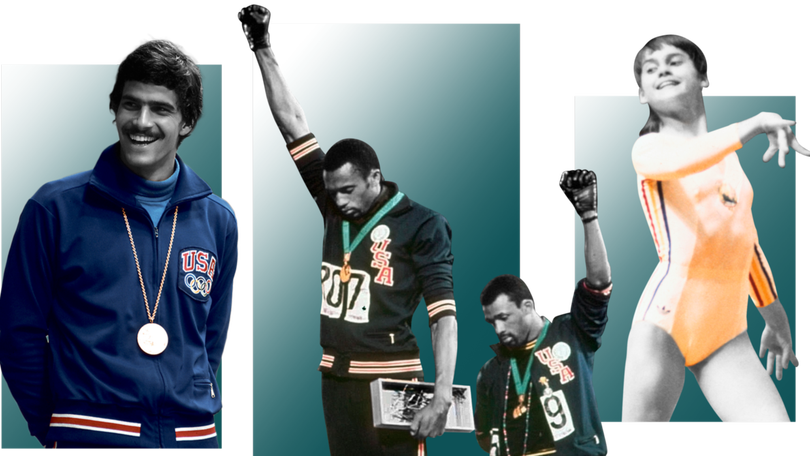
The Olympic Games have always been a stage for extraordinary feats, moments of sheer brilliance, and unforgettable drama.
As we celebrate Australia’s rich Olympic history and look forward to the Paris 2024 Games, it’s also fitting to reflect on some of the most iconic international moments that have defined the spirit of the Olympics.
Jesse Owens defies Adolf Hitler, Berlin 1936
Sign up to The Nightly's newsletters.
Get the first look at the digital newspaper, curated daily stories and breaking headlines delivered to your inbox.
By continuing you agree to our Terms and Privacy Policy.Adolf Hitler wanted the Berlin Olympics to be a celebration of his Aryan “master race”.
Germany emerged with the most medals, but the 1936 Games were all about Jesse Owens.
An African-American athletic one-of-a-kind from Oakville, Alabama, Owens had been under pressure to boycott the Games in protest at Hitler’s racist Nazi regime.
He’d been the talk of the lead-in against a politically charged backdrop after setting three world records over the 100m, 200m and long jump within an hour at a 1935 meet in Michigan, a feat that has never been equalled and probably never will.
A year later in Berlin, with the German chancellor looking on, Owens won the 100m in 10.30 seconds, the 200m in 20.70sec, and the long jump with a leap of 8.06 metres. He added a fourth gold in the 4x100m relay, when the team set a new world record of 39.80sec.
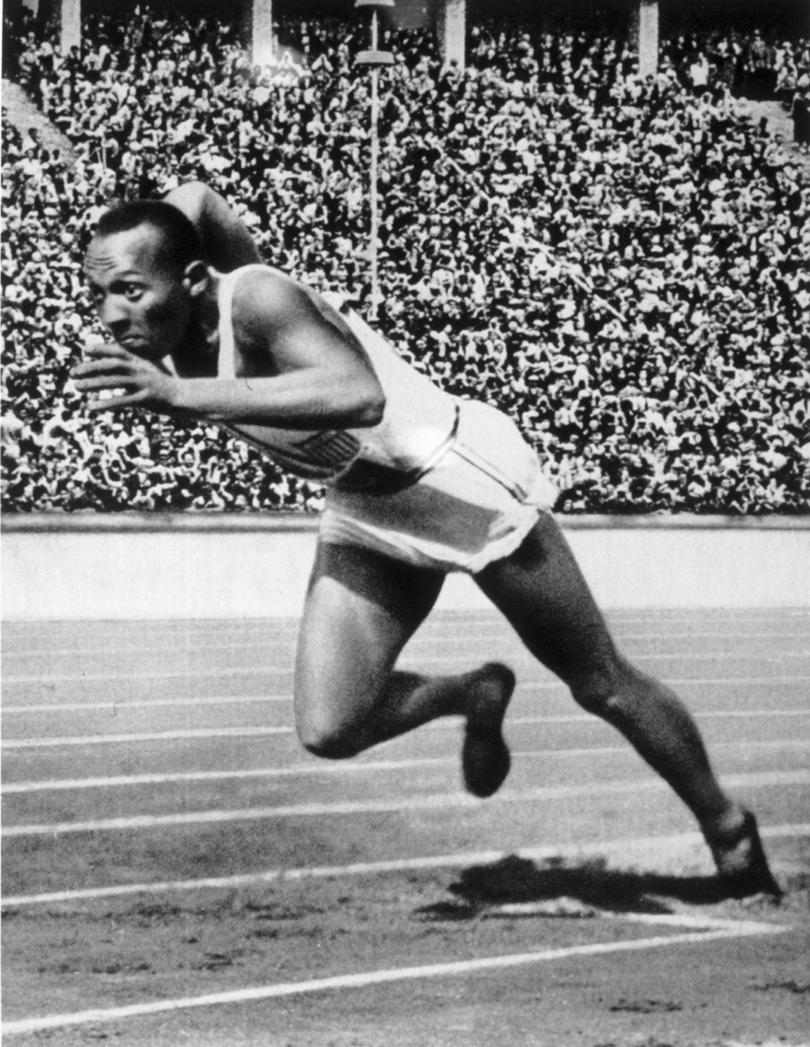
Contrary to popular opinion, Owens revealed he was never snubbed by Hitler.
“Hitler didn’t snub me— it was our president (Franklin Roosevelt) who snubbed me. The president didn’t even send me a telegram,” Owens said.
Black Power salute, Mexico 1968
US pair Tommie Smith (gold) and John Carlos (bronze) and Australian Peter Norman (silver) filled the podium and divided the world.
As the US national anthem, The Star-Spangled Banner, played after the men’s 200m final in Mexico 1968, Smith and Carlos raised a black-gloved fist in an act of defiance to highlight segregation and racism at home. Norman wore a human rights badge in solidarity.
The Black Power scandalised the Olympic movement. All three never competed for their country again.
While Smith and Carlos were seen as heroes of the civil rights movement, Norman was ostracised.
Smith won in a world record time of 19.83 seconds. Norman’s 20.06 seconds remains the Australia and Oceania record.
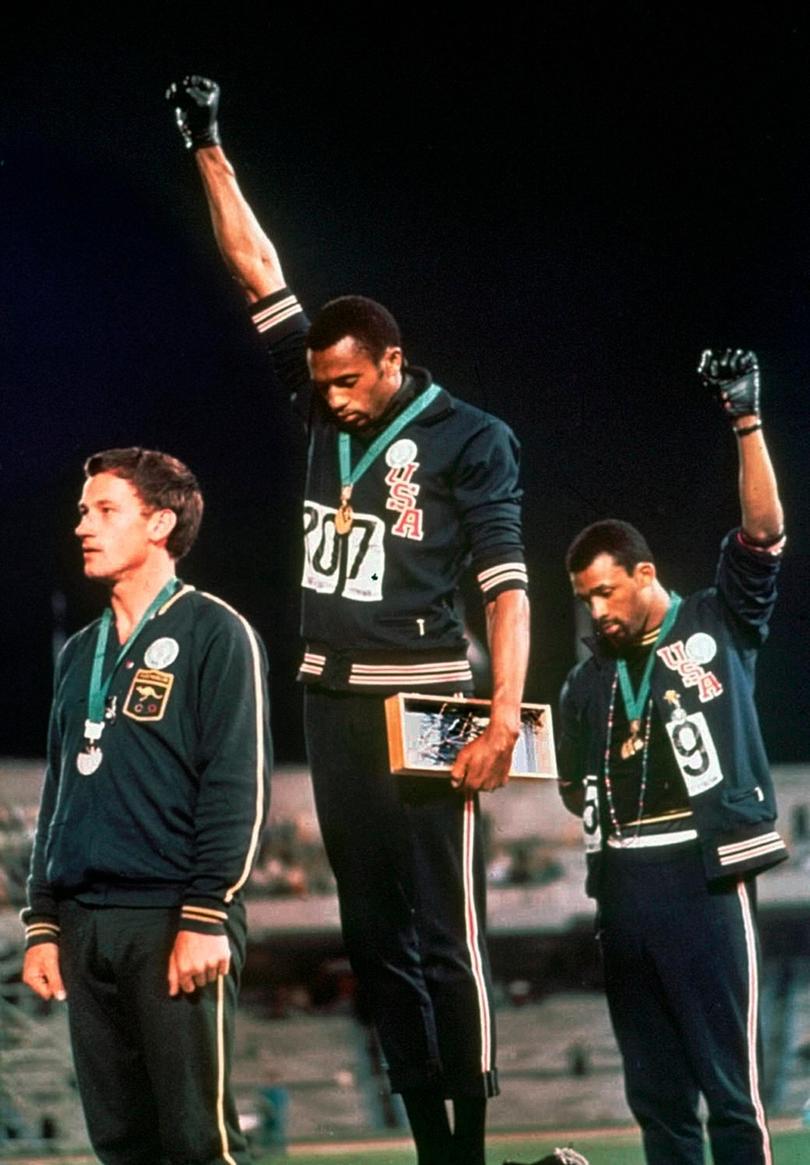
Usain’s lightning bolt, Beijing 2008
Jamaican sprinter Usain Bolt had teased with semifinal appearances in Athens 2004, but he arrived in world record time with his trademark lightning bolt victory pose at Beijing 2008.
The new mark was 9.69 seconds, nearly a quarter of a second ahead of silver medallist Richard Thompson (9.89).
He did it without wind assistance, ran with an untied shoelace and even had time to toy with the camera at the finishing line, celebrating before he’d crossed the finish line.
He backed it up with another world record, winning the 200m final in 19.30sec.
A year later he ran a 9.58, a world record that still stands.
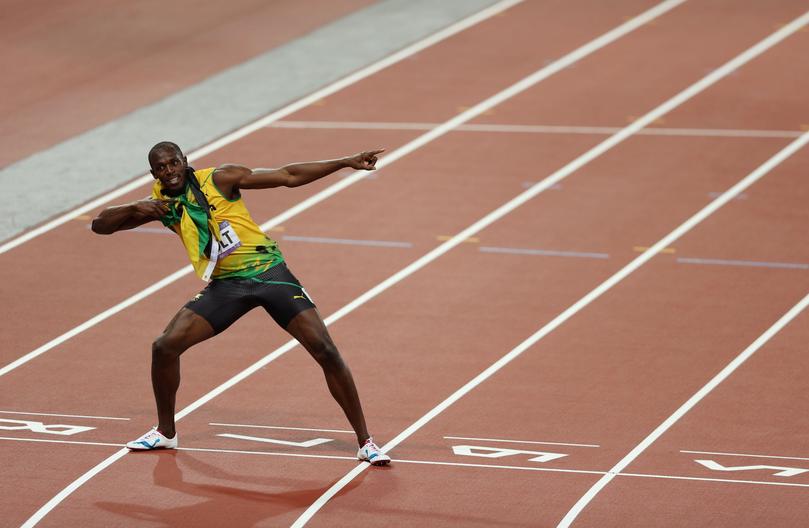
In his autobiography The Fastest Man Alive, Bolt wrote: “Honestly, I ate nothing else in all my time out in China except chicken nuggets. They were the only food I could properly trust which wouldn’t affect my stomach.’’
Bolt would go on to become the only sprinter to win the Olympic 100m and 200m at three consecutive Games (2008, 2012 and 2016).
Bolt never left an Olympic event with anything short of a gold medal, as Jamaica also won the 4×100 relays in which he participated.
If not for a teammate’s doping uncovered in 2018, the retired sprinter would have nine Olympic gold medals instead of eight.
US Dream Team, 1992
If the US basketball “Dream Team”, the first active NBA stars to compete at any Olympics, felt the pressure at Barcelona in 1992, they didn’t show it.
Led by Michael Jordan, Earvin “Magic” Johnson, Charles Barkley, Larry Bird, Scottie Pippen, Karl Malone and Patrick Ewing, their average winning margin was 44 points en route to the gold medal, including a 79-point victory over Cuba.
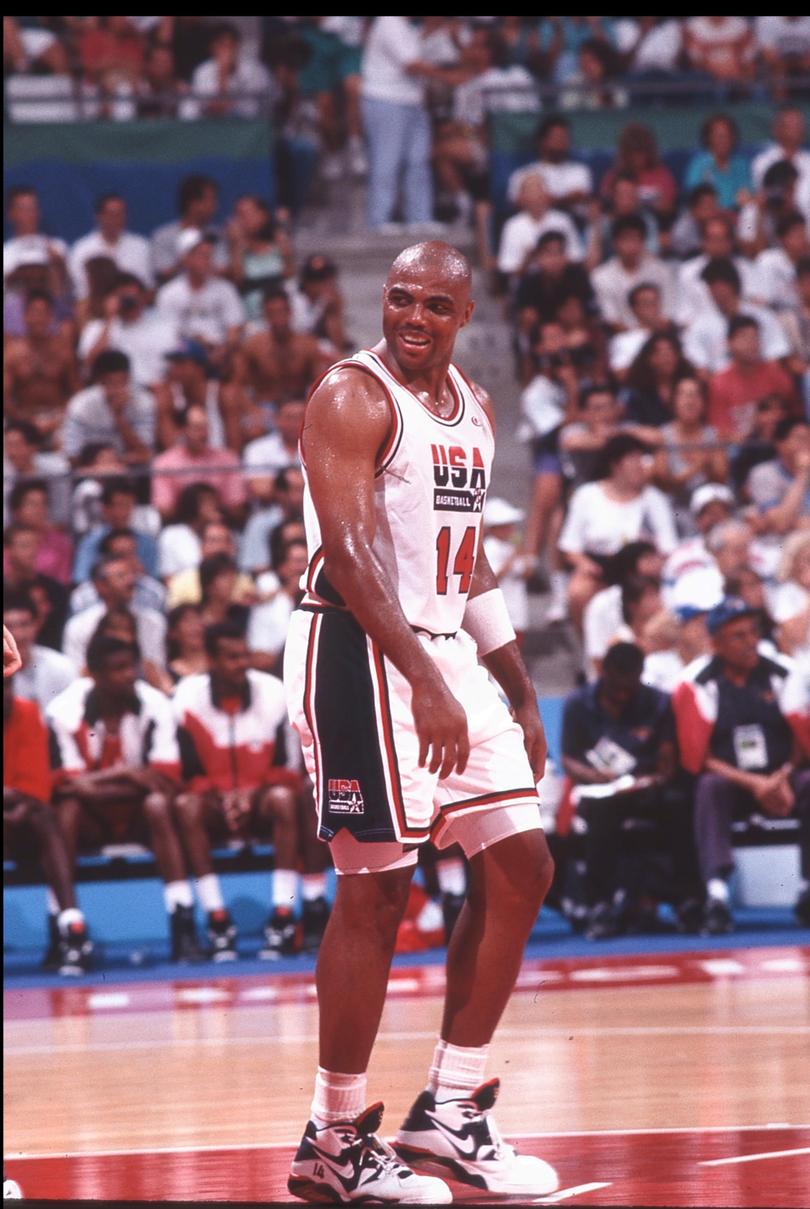
Of the 12 players on the team, 10 were named in 1996 among the 50 greatest players in NBA history.
Head coach Chuck Daly did not call one timeout during the Olympic tournament.
Jordan and Pippen became the first players to win both NBA championship (with Chicago Bulls) and Olympic gold medal in the same year.
As “Magic” Johnson said: “I look to my right, there’s Michael Jordan … I look to my left, there’s Charles Barkley or Larry Bird … I didn’t know who to throw the ball to!”
Carl Lewis, Four in ‘84
Ranked No. 1 in the world over the 100 metres and in long jump for three consecutive years, Carl Lewis was expected to dominate the headlines at Los Angeles 1984.
Just like his boyhood hero Jesse Owens had done in 1936, Lewis won the 100m-200m double, the long jump and the 4x100m relay.
Lewis is one of two athletes, alongside Finnish middle and long distance runner Paavo Nurmi, to win nine Olympic gold medals.
He is also one of only three Olympians, alongside American discus thrower Al Oerter and Danish sailor Paul Elvstrom, to win four Olympic gold medals in the same event.
But it almost didn’t happen as Lewis scraped into the US team for the 1996 Atlanta Games as a long jumper.
He needed all three jumps to qualify for the final where he moved into third place on his third jump and remained in that position.
His success in the long jump made Lewis one of only three Olympians to win the same individual event four times. He is also one of only four Olympic athletes to win nine gold medals.
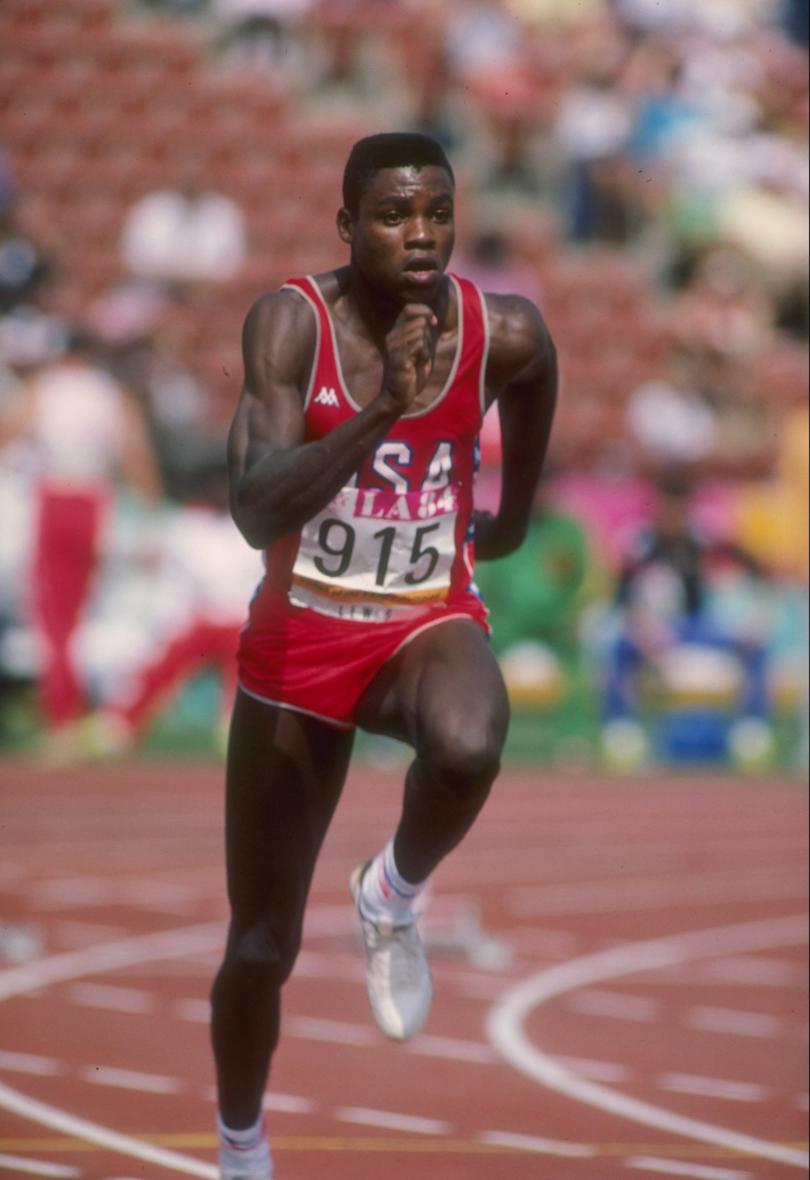
Mark Spitz, Seventh Heaven
American Mark Spitz’s boldly forecast he would win six gold medals heading into the 1968 Olympics in Mexico City. He won two, both in relays.
Four years later in Munich, his words rang true. Over eight days, he swam in seven events and emerged from the pool with gold and a new world record in each.
It was a record he’d hold for 36 years, until Michael Phelps came along.
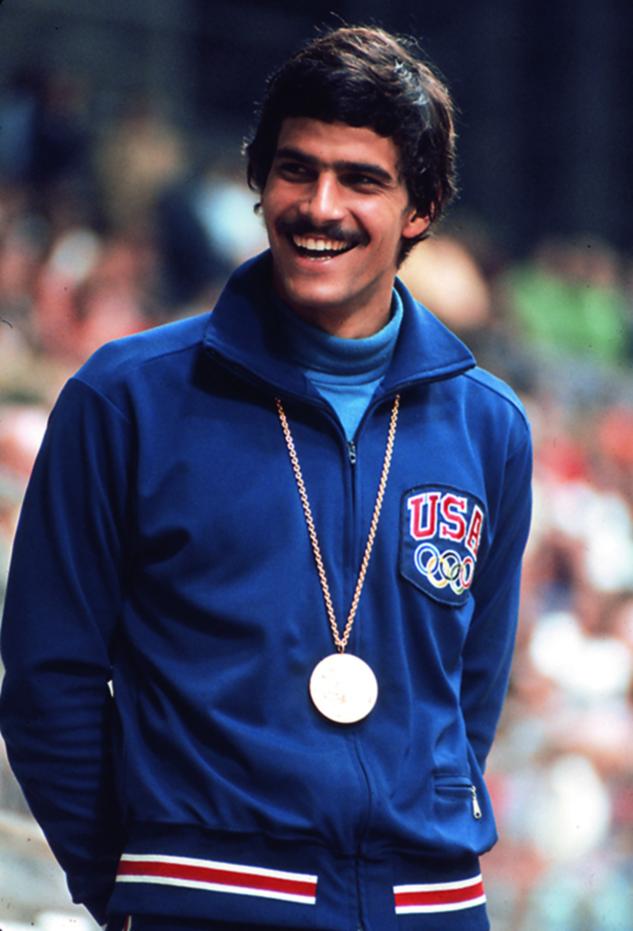
Phelp’s gold medal feast
Michael Phelps’ “victims” should have seen it coming in Athens 2004 when the American super fish captured six gold and two bronze medals, setting five Olympic or world records.
Roll on to Beijing 2008 and domination became an obliteration with the greatest ever medal haul by a single athlete in an Olympic Games.
Setting his sights on Mark Spitz’s seven gold medals from 1972, Phelps helped himself to eight - in every event he entered – and set world records in seven.
He secured gold in the 400m IM, 4x100m freestyle relay and 200m freestyle in world record pace.
Next up were golds in the 200m butterfly and 4x200m freestyle relay, the latter in a new Olympic record.
A sixth came when he broke his own world record in 200m IM.
After tying Spitz with victory in the 100m butterfly final by 0.01sec he passed him as a member of the winning 4x100m medley relay team.
He set world records in all but one event (100m butterfly).
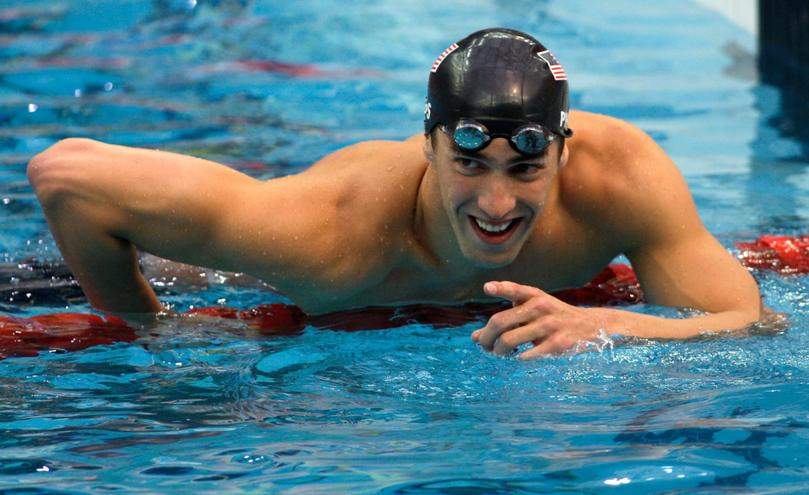
He finished his Olympic career with 28 medals, 23 gold.
They say it will never be broken. But they said that about Spitz.
Ben Johnson, Seoul destroyer 1988
It was the most celebrated and damned 100 metres ever run, won and lost.
Canadian Ben Johnson’s beat his own world record with a 9.79 second gold medal winning feat in Seoul 1988.
“I’d like to say my name is Benjamin Sinclair Johnson Jr, and this world record will last 50 years, maybe 100,” he told the media after the race.
“A gold medal – that’s something no one can take away from you.”
Three days later, Olympic authorities did just that when Johnson was disqualified after testing positive for the banned steroid stanozolol.
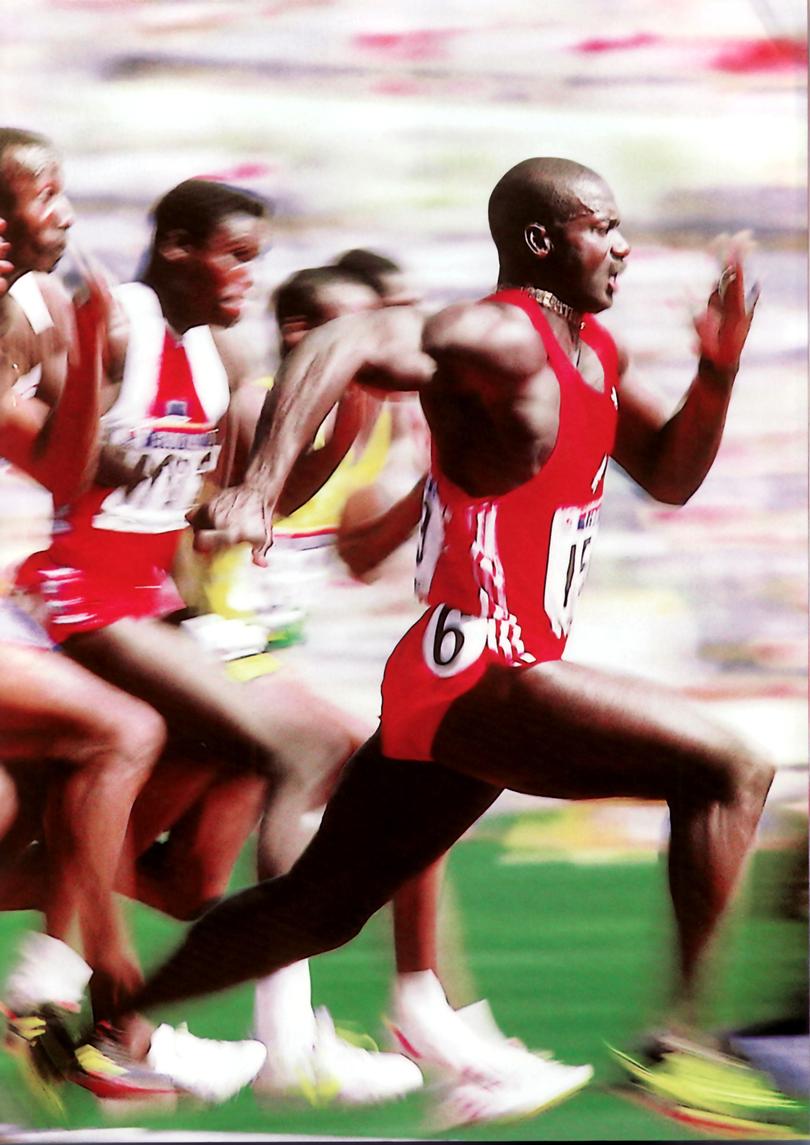
American Carl Lewis was handed the gold medal, with English sprinter Linford Christie handed the silver and Calvin Smith of the US the bronze.
History would be an even harsher judge of that final.
Six of the eight starters in that final, including Lewis, either failed drug tests or were implicated in their use at some stage of their careers.
It is why journalist Richard Moore’s book on the Seoul Olympic 100m final was titled The Dirtiest Race in History.
Terrorism’s tragic hand, Munich 1972
At 4.30am on September 5, 1972, eight men in tracksuits scaled the fence at Munich’s Olympic Village and changed the Olympic Games for ever.
Hooded and armed with Kalashnikov rifles and grenades they carried in duffel bags, members of the terrorist group Black September, an affiliate of the Palestine Liberation Organisation, entered the village disguised as athletes and using stolen keys.
Their mission? To hold Israeli athletes hostage and force the release of 236 prisoners: 234 in Israel and the two leaders of the West German Baader-Meinhof terrorist group.
About 20 hours later, their mission ended in bloodshed. Five of the hostage-takers were dead, along with 11 members of Israel’s Olympic team and a West German policeman.

The Moscow boycott, 1980
The United States led a mass boycott of the 1980 Olympic Games in Moscow, in response to the Soviet Union’s invasion of Afghanistan the previous year.
About 5000 athletes from 80 countries, a third fewer than in Munich eight years earlier, competed.
Australia did not observe the boycott, along with a number of Western powerhouses, including Great Britain, France, Italy, and Sweden, although a number of athletes stood out – or were pressured to do so.
The USSR won 87 gold medals.
The highlights were Misha the bear’s wink at the Opening Ceremony, which many countries chose not to attend, a catchy song Moscow recorded by the band Ghengis Khan, and incredible athletics performances from Ethiopia’s Miruts Yifter in the 5000m and 10,000m and British gold medallists Sebastian Coe, Steve Ovett, Allan Wells and Daley Thompson.
Australia won only nine medals: two gold, two silver and five bronze.
Nadia’s perfect 10, 1976
Romanian 14-year-old Nadia Comăneci achieved what no gymnast had done before: A perfect 10 for a 30-second performance on the uneven bars.
Even the scoreboard was confused, flashing up a 1.00 as it had only three digits to display scores such as 9.99 and couldn’t show a 10.00.
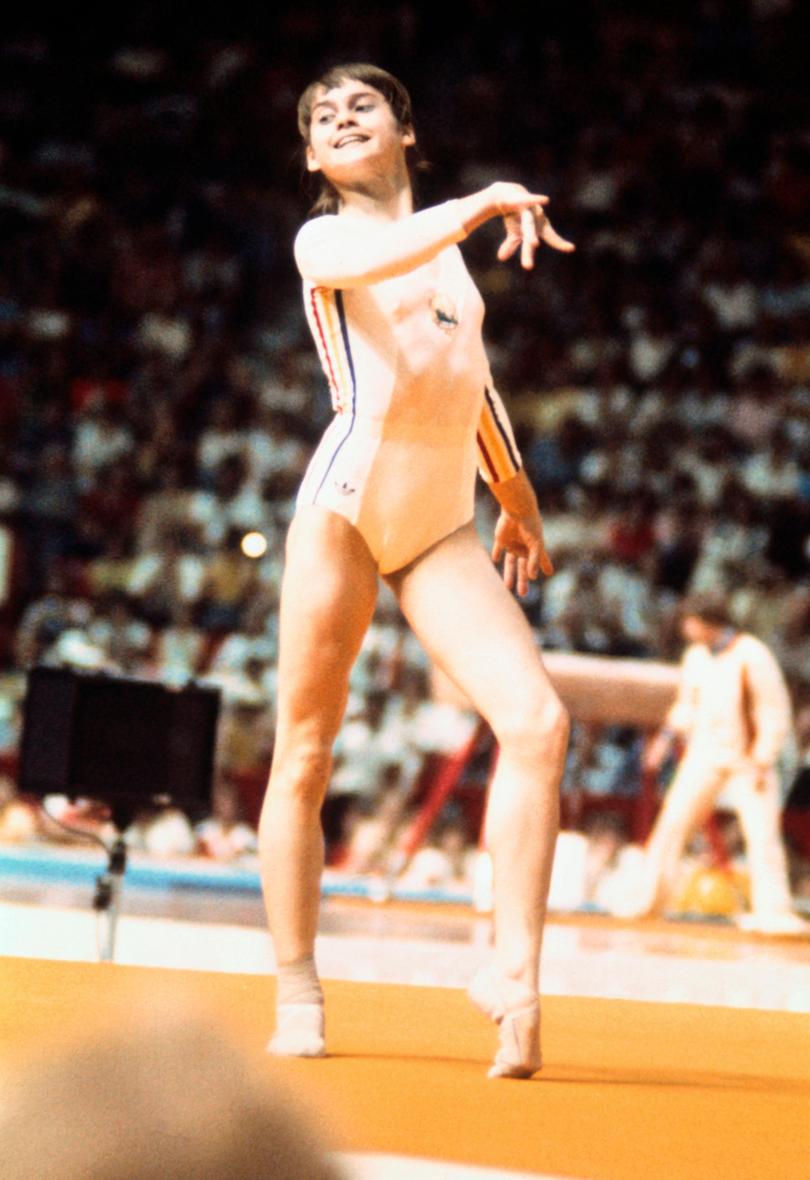
She added two more Olympic gold medals at Moscow in 1980 (balance beam and floor).
On the beam, she was the first gymnast to perform an aerial walkover and cartwheel-back handspring flight series.
She also introduced the double twist dismount and a double back salto on the floor.
Comăneci earned the nickname “the goddess from Montréal” and by the time she retired had recorded another six perfect 10s.
“I don’t run a way from a challenge because I am afraid. Instead, I run toward it because the only way to escape fear is to trample it beneath your feet,” she said.
